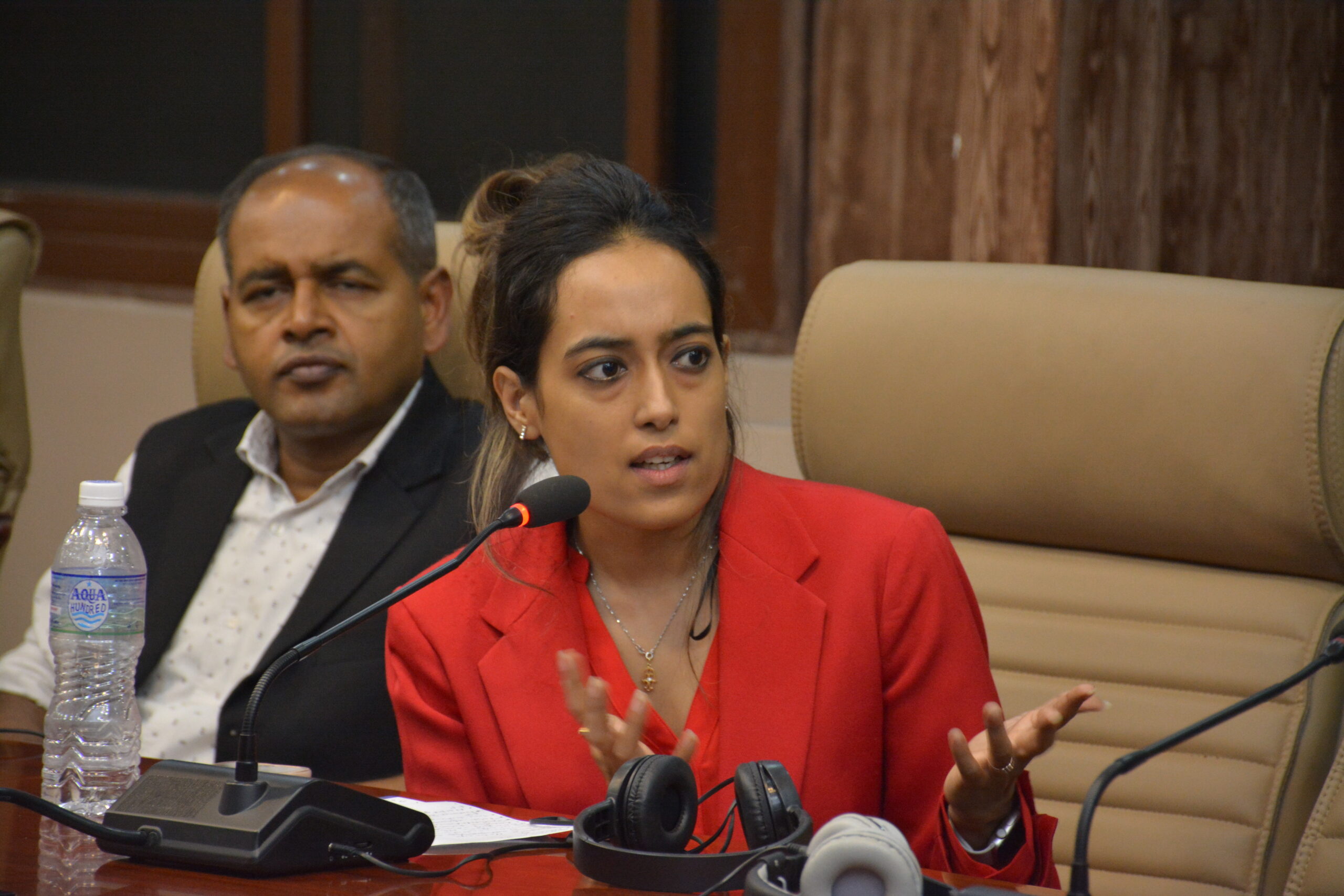To be honest, I am relatively new to the realm of foreign policy, and my journey began with a deep interest in infrastructure development.
At the time, discussions surrounding the Belt and Road Initiative (BRI) and the Millennium Challenge Corporation (MCC) were in full swing.
One burning question on our minds was: What is Nepal’s relationship with two major players, the United States and China?
To answer this, we embarked on a project to explore the cooperation efforts of these two influential nations with Nepal.
We firmly believe that a comprehensive investigation into this matter is imperative.
Additionally, we compared Nepal’s interactions with other traditional partners such as America, India, Japan, and China.
Surprisingly, we discovered that China’s interests are not vastly different from those of America and Japan; they all pursue their distinct agendas in Nepal.
Nepal, to me, is both a friend and a nemesis. It is essential for Nepal to establish a clear national agenda in foreign policy.
Our discussions should be centered on the interests of our nation. Presently, Nepal’s most significant asset is its water resources and hydropower potential.
We are in discussions with India to supply a certain number of megawatts, but India also expects Nepal to purchase power from them.
Meanwhile, negotiations are ongoing with Bangladesh for power supply. China, on the other hand, has shown reluctance to purchase power from us.
Given our substantial investments in hydropower and energy, it is crucial to integrate energy diplomacy into our foreign policy, connecting it to our economic aspirations.
We are engaged in trade, but the question arises: How can we engage in trade with China and India while safeguarding our national interests? Establishing a clear standard is imperative.
We must address pressing questions, such as the anticipated changes over the next decade and the significant loss of electricity generation when Panchthar’s Hewa Khola (Hewa river) was flooded this year.
China and India are both emerging economic giants with substantial market potential, but Nepal needs to consider what it can sell to these nations.
It is equally important to deliberate on the alignment of our domestic and foreign policies.
Particularly noteworthy is the ongoing discourse surrounding Nepal’s hydropower-centric economic development.
The impacts of climate change are increasingly evident, further necessitating a national dialogue.
We must address pressing questions, such as the anticipated changes over the next decade and the significant loss of electricity generation when Panchthar’s Hewa Khola (Hewa river) was flooded this year.
Our national policy and dialogue should revolve around infrastructure policy issues.
(Edited excerpt from the remarks by Sreeya Rana, Program Manager at Policy Entrepreneurship Inc., during a program on ‘Challenges and Opportunities of Nepal’s Foreign Policy,’at Pavilion Hall, Durbar Marg, Kathmandu)









Comment